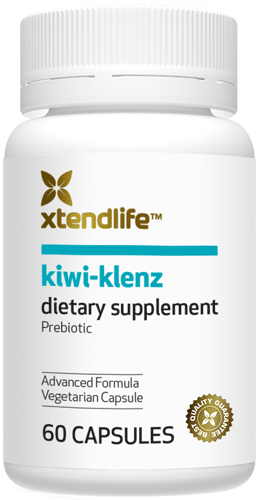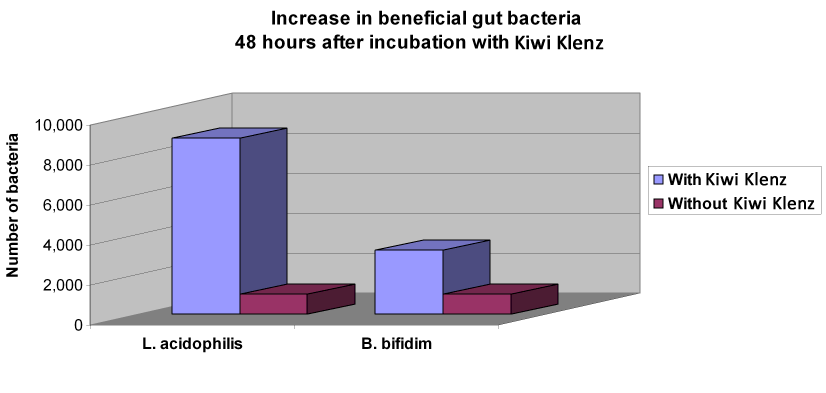It’s hard to imagine there is literally a thousand different kinds of digestive bacteria that naturally live within the digestive tract. Some are good and some are bad, and it’s easy for them to get out of balance. Good bacteria is vital for the proper digestion of food and intake of nutrients into the blood. When there aren’t enough, it plays havoc with your digestion. Symptoms such as gas, bloating, and even obesity can result.
So, what can be done to maintain proper balance of digestive bacteria in the body? That’s where a good natural digestive can help!
Probiotics vs Prebiotics
When thinking about your digestive bacteria, you’ll most likely be inclined to think about probiotics. They’re everywhere — on commercials and adverts for food and supplements worldwide. However, something that you might not be aware of is that these probiotics need prebiotics to be able to function correctly.
Probiotics get all the press, but their effectiveness decreases substantially without the help of prebiotics. Why is that?
Prebiotics feed the good bacteria in the intestines. Without enough food, no matter how many probiotic supplements you take, the good bacteria that they provide will find it hard to survive. Yes, good bacteria needs to eat too!
The prebiotics vs probiotics debate actually raises some other important question over the effectiveness of probiotics. In particular, whether the good bacteria in probiotics can actually survive the transit through the gastrointestinal tract, including gastric acid and bile acids, and be able to get established in the intestine.
Is Digestive Bacteria Really THAT Important?
Interestingly, yes it is. Very much so! Many people know about the common symptoms of a bacterial imbalance in the intestine — gas, unhealthy stools, constipation, an increased likeliness to suffer with inflammatory bowel disorders.
However, scientists are discovering that a number of diseases that you wouldn’t expect to be related to changes in digestive bacteria, actually are. These diseases include poor immunity, cardiovascular disease, diabetes, and even obesity.
This study found that there were differences in the composition of the intestinal microbiota in humans with type 2 diabetes (a metabolic disease, characterized by sustained high blood sugar levels, primarily caused by obesity-linked insulin resistance) and those who were non-diabetic. The study followed up on this earlier study, published in 2009, which showed how altered gut bacteria correlated with the onset of diabetes in rats.
According to researchers at the University of Florida, the onset of type 1 diabetes (commonly known as insulin dependent juvenile diabetes) in children is also strongly linked to the balance of bacteria in the gut.
A growing body of research into obesity and the bacteria in the gut has found the flourishing bacteria can cause low grade inflammation as the body attempts to respond to the situation, while at the same time makes cells less sensitive to insulin. New studies are also revealing different ways that gut bacteria can cause obesity.
If the cells are busy responding to inflammatory factors, then they’re less likely to take up glucose and process it effectively. This desensitization to insulin and glucose negatively impacts the metabolism, leading to metabolic syndrome disorders, such as weight gain, high cholesterol and triglyceride levels, and elevated blood pressure.
What Causes Changes in the Digestive Bacteria?
There are a number of factor that can upset the bacterial balance in the gut. Common ones include relying on antacids (which reduces the acid needed to kill bacteria), decrease in stomach acidity due to aging, compromised immune system through poor diet, and the use of antibiotics which kill off all the good bacteria as well as the bad.
New research has also found that stress not only sends the human immune system into overdrive, it can also have a detrimental effect on the good bacteria inside our digestive system.
Of course, the food that you put into your body influences the bacteria too. Many people report success in restoring the balance by making dietary changes and eliminating sugar, which bad bacteria thrives on.
However, the best thing that you can do to improve the bacteria in your gut is to take a good quality prebiotic supplement.
We believe that Kiwi Klenz is the best prebiotic supplement available.
How Kiwi Klenz Can Help Improve Your Digestive Bacteria

Kiwi Klenz is made 100% from the extract of kiwi fruit skin (the most nutritious part of the fruit) and pulp. Recent scientific research found that the pectin in kiwi fruits had better prebiotic activity than inulin (usually extracted from chicory root), which is considered to be the “gold standard” of prebiotics.
Laboratory data has indicated that it substantially increased the adhesion of “good bacteria” Lactobacillus to the intestinal wall, while at the same time reduced the adhesion of “bad bacteria” Salmonella typhimurium.

What’s also important to note is that kiwi fruits also contain plant phenolics. These compounds protect plants from bacteria and other parasites. According to this study, they also have antimicrobial properties in the human body.
Kiwi fruits have a whole range of other health benefits for digestion, including containing digestive enzymes, making a kiwi fruit extract supplement the number one choice for improving digestive bacteria.
The great thing about Kiwi Klenz is that the manufacturer offers a money back guarantee if you’re not satisfied, so you can TRY IT RISK FREE!



